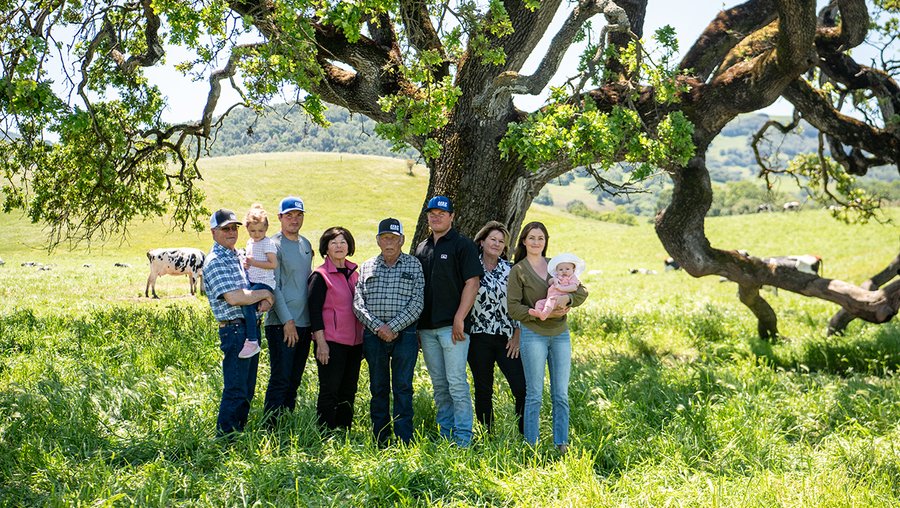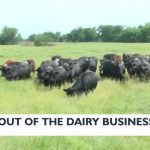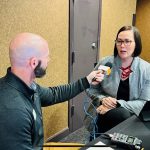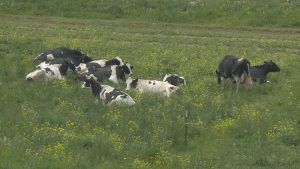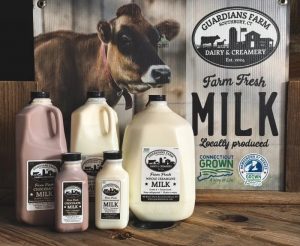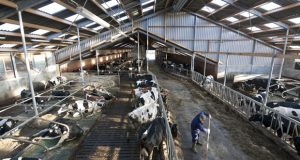
According to the U.S. Department of Agriculture’s 2022 Census of Agriculture, this is the first time since before the Civil War that the number of U.S. farms has fallen below 2 million. In California, local family-owned dairy farms hold a critical, but endangered, role.
It’s important to support California’s family-owned dairy farms now more than ever. Luckily, California is home to some of the country’s most innovative and sustainable dairies, which are crucial to the state’s local food system.
Regenerative practices. In places like Sonoma and Marin Counties, climate plans rely on dairy farms and undeveloped grasslands for carbon sequestration and ecosystem services. A dairy brand leading the way is Clover Sonoma with one of the largest regeneratively managed organic dairy footprints in California. From rotational grazing and no-till planting practices to continuous vegetative cover and the use of native grasses, 100% of Clover’s organic dairies implement at least five regenerative agriculture practices. The results? Improved carbon capture, soil water retention capability, increased crop productivity for their cows, soil microbial diversity and land resilience.
Animal welfare. Animal welfare is a core value for dairy farmers. In 2000, Clover Sonoma was the first U.S. dairy brand to earn American Humane certification across its entire network of family farms. Upholding the highest standards means zero tolerance for animal abuse, extensive employee training, a herd health plan overseen by a veterinarian and annual farm audits.
Positive climate impact. California dairies are leading sustainability efforts through methane reduction projects. In 2022, Clover piloted feeding red seaweed which reduced enteric methane emissions by over 50%. In 2024, the company became the first regional dairy to join the Dairy Methane Action Alliance, according to the Environmental Defense Fund. The alliance is made up of global food and dairy companies committed to accounting for and publicly disclosing methane emissions from supply chains as well as creating and implementing an action plan to reduce methane emissions.
Dairy economics. According to the California Milk Advisory Board, California dairy generates $57.7 billion annually and 180,000 year-round jobs depend on the state’s milk production and processing. In Sonoma County alone, 42 organic dairies produce more than a tenth of all organic milk nationwide, according to a study by Sonoma County Economic Development Board and Sonoma County University of California Cooperative Extension.
California family-owned dairy farms are leading animal welfare, sustainability and regenerative agricultural practices. They provide jobs and billions of dollars to the local economy while enabling nutritious, local farm-to-table excellence to flourish.
To learn more about the role of California’s dairy farmers, visit cloversonoma.com.
Clover Sonoma is one of California’s first regeneratively farmed organic dairy producers and a sustainable dairy pioneer. For more than a century, it has produced some of the highest-quality dairy from its network of 30 family farms. A Certified B Corporation, Clover Sonoma was the first American Humane Certified milk company.
You can now read the most important #news on #eDairyNews #Whatsapp channels!!!
🇺🇸 eDairy News INGLÊS: https://whatsapp.com/channel/0029VaKsjzGDTkJyIN6hcP1K
